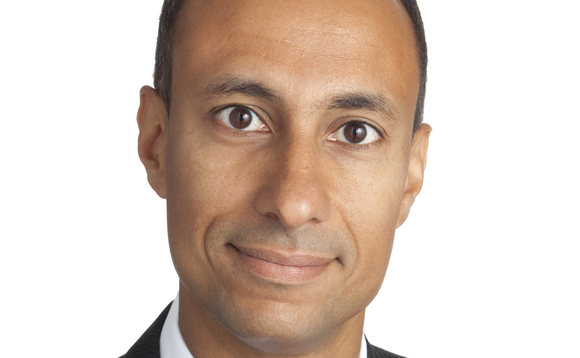
"Skatteverket doesn't have a case" – Nordic Capital's Klas Tikkanen

Mikkel Stern-Peltz speaks to Klas Tikkanen, COO of NC Advisory (adviser to the Nordic Capital funds), about the ongoing carried interest tax case in Sweden.
Just before last Christmas, the Swedish mid-level administrative court (Kammarrätten) ruled in favour of Nordic Capital, in a three-year case against the Swedish tax authority (Skatteverket) about taxation of carried interest payments.
The authority remains adamant carry should be taxed at the income tax rate of 55%, rather than as capital gains at 25%. Skatteverket appealed the verdict to Sweden's highest administrative court, Högsta Förvaltningsdomstolen, in March and the court is now deliberating whether or not to go ahead with the appeal.
Tikkanen says NC Advisory (NC) expects to win, because the GP is confident it has the law on its side.
Mikkel Stern-Peltz: What issues does NC have with Skatteverket's claims?
Klas Tikkanen: As you can read in the verdict from Kammarrätten, the court actually directs very serious criticism towards Skatteverket, insofar that it says Skatteverket has not presented any legal basis for its claims, nor any factual basis for its claims. This is what we have been saying to whoever wants to listen for the last six years.
It's very hard to defend yourself against somebody who just stands up and says: "We feel that this should be taxed as salary." It defeats the whole notion of a civilised society and legal system: we live in a society where laws and regulations should govern how we act and work. You put your own code of conduct on top of that, but ultimately when somebody stands up and says, "Those guys over there did something wrong,' and those guys refute that, you have to fall back on law and common practice.
Here it seems the tax authority hasn't even bothered to present any facts or law, and that's actually something Kammarrätten has picked up on. If you read page 28 of the court verdit, it summarises everything quite clearly.
Skatteverket's disregard for law and evidence is something that is extremely frustrating for us, and is also why we won in Kammarrätten, and why we are confident we will ultimately win.
Secondly, we have been declaring our income in the same way as the whole industry has done for 20 years. We've had two tax audits over the last 15 years without any remarks, so it doesn't feel good to have Skatteverket retroactively come and change its view, and on top of that say that it should be able to "after-tax" which in Sweden you're only able to do if the person declaring income has done something wrong in the declaration.
On top of that, Skatteverket wants to add fines, which should only be done if there has been gross negligence or criminal conduct. It feels unjust and frustrating.
MSP: With implications for the broader Swedish private equity industry, has the case had an effect on how the industry is operating while it remains unresolved?
KT: I would say the effects have been quite limited as of yet. I think most of our colleagues in the industry are fairly confident the tax authority will fail. Skatteverket has been kind of creative in this way in a few different areas for the past couple of years – for example, they have attacked interest rate deductions on shareholder loans, also in a way that has no basis in law – and they have lost in all areas.
After having seen how the courts in the end have fallen back on law, people are fairly hopeful and confident that we will ultimately win. Largely our peers and us have been going about our business as usual.
If by any remote chance we would not win in the end, I think that would have a profound effect on the whole industry.
MSP: Once the uncertainty created by this case has gone, do you think it will boost the trend of GPs moving their funds back onshore in Sweden?
KT: Absolutely. Nordic Capital has been looking at moving onshore on and off over the years, and I think the prerequisites for us to go onshore include a stable and – by international standards – attractive, competitive regulatory environment, and that includes the behaviour of the Swedish tax authority.
If we would win, that would obviously be a huge boost to our confidence in the Swedish legal system and that would be one important prerequisite for moving onshore.
If we could provide our investors with the confidence that Sweden can offer the same regulatory certainty and stability [as Jersey], we would love to move onshore.
MSP: Will you be seeking damages if you win?
KT: We were awarded costs in the previous case, and that's what we get. There's no legal basis to get further reparations for this, and we just don't see the point.
We want stability and we want to go about our business, and it would be much more productive for us, the Swedish industry, and for society if we could just go back to doing what we do best.
I do want to point out that we have been told by many sources that this is the largest ever award of legal costs in any tax case ever in Sweden.
The award we received was about 40-50% of Skatteverket's yearly budget for cost claims, so it clearly made a dent in its budget, and that says something about how the court viewed this case.
In the verdict, the court discusses how much it should award us, and since it gave us the largest amount probably ever awarded, I think the court wanted to explain why.
The court document says on page 28 that Skatteverket's claim was thoroughly unclear, both in fact and in law, and that the court has had to rely on NC's own legal analysis and investigation in order to render its judgement.
Combined with the fact that it's a huge process with big sums at stake, it seems the court felt it was in good order that we get paid for all the work that, implicitly, Skatteverket should have done instead of us.
MSP: If you win, what will happen once the case is finally closed?
KT: We and the Nordic Capital funds will continue doing what we do best.
Scroll down for an interactive timeline detailing the case so far.
Latest News
Stonehage Fleming raises USD 130m for largest fund to date, eyes 2024 programme
Sponsor acquired the public software group in July 2017 via the same-year vintage Partners Group Global Value 2017
Stonehage Fleming raises USD 130m for largest fund to date, eyes 2024 programme
Czech Republic-headquartered family office is targeting DACH and CEE region deals
Stonehage Fleming raises USD 130m for largest fund to date, eyes 2024 programme
Ex-Rocket Internet leader Bettina Curtze joins Swiss VC firm as partner and CFO
Stonehage Fleming raises USD 130m for largest fund to date, eyes 2024 programme
Estonia-registered VC could bolster LP base with fresh capital from funds-of-funds or pension funds









